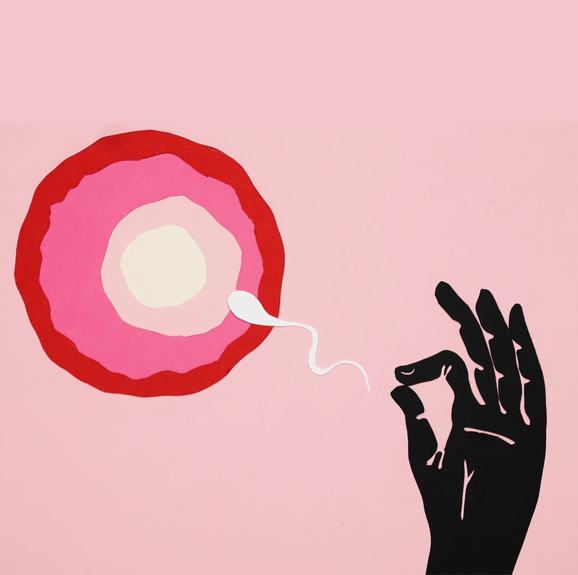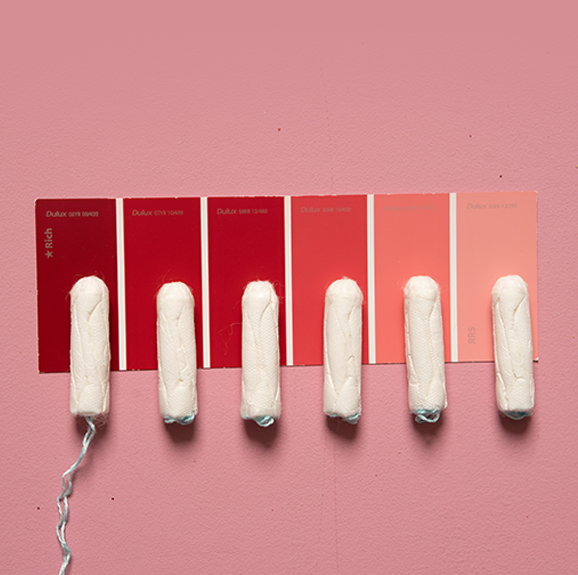
You may find it surprising (or perhaps not news) that menstrual poverty affects girls, women, and non-binary or trans people around the world. The lack of safe products, adequate spaces, and the right to manage our periods with dignity—all these affect our daily lives, and myths do nothing to change the situation.
While there are some superstitions that are pretty funny regardless of their origin, they cause more harm than laughter, perpetuating the stigma we are trying so hard to abolish, once and for all. A few of them are extremely popular—sometimes taken more seriously than the truth—so we're sharing them in this article.
1. You can't exercise when you "feel like it"
The truth:
Exercise is actually encouraged during your period — that's if you don't feel discomfort, of course — because it has a wide range of benefits. If you have mood swings, sports are really recommended!
The endorphins you release during exercise can reduce these mood swings, plus the improved blood circulation can reduce your cramps. You just make sure you use organic products all the time and don't be afraid to go about your normal activities while listening to your body.
2. There is no Premenstrual Syndrome
The truth:
PMS exists and is caused by hormonal fluctuations during the cycle. It translates into a series of physical and mental symptoms, but different for each person: from bloating and breast sensitivity, to fatigue or mood swings. Moreover, dysmenorrhea - or menstrual pain - can range from mild to severe and can be accompanied by other pain.
3. You can't get pregnant during your period
The truth:
Such a common misconception! Sure, the probability is low, but it's possible for an egg to be fertilized while you're on your period, especially if you have a shorter cycle. Why? Simple, because sperm last between 2 and 5 days after sexual contact. So, in the case of early ovulation and sexual contact in the last days of menstruation, fertilization is possible. Especially since the ovum, in turn, can be fertilized up to 24 hours after expulsion.
So it's important to always practice protected sex, regardless of whether you're on your period or not - that's if you don't want to get pregnant.

Photo source: Pexels.com/Nadezhda Moryak
4. Your menstrual cycle will synchronize with your girlfriend's
The truth:
There is a very popular belief about women living together and synchronizing their periods. You've probably heard: If you have a roommate or close friend you spend a lot of time with, rumor has it that your cycles will sync up. However, it is just a myth and there is no scientific evidence to support it.
5. Menstrual blood is dirty blood
The truth:
Menstrual blood is made up of blood and uterine tissue. Sometimes it may appear coagulated or darker in color and this is perfectly normal.

Photo source: 123rf.com
And the truth is that menstrual blood is no less hygienic than other types of blood or human tissue! It cannot exist outside the body without decomposition, and there is nothing to make it unhygienic.
6. You can't swim during your period
The truth:
It is completely safe to swim during your period! The belief that you have to stay away from water during your period is just a myth. And you may have heard the myth that swimming in the ocean can attract sharks! Luckily it's just an urban legend; there is no evidence that this can actually happen.
7. If you use tampons, you lose your virginity
The truth:
Using a tampon during your period does not change the state of your body in any way. And the first time you have sex is not the same as using a tampon, and if you're worried about the hymen, you should know a few things about it. The most important thing to remember is that your hymen isn't "breaking", it's stretching. In addition, it does not completely cover the entrance to the vagina, it has a small opening that allows the menstrual blood to be eliminated and the tampon to enter the vagina.
In addition, the hymen can also detach following an accident, a blow, intense physical activities. Or you can be born without it! Virginity is a social concept , not a tissue in the body!
8. An irregular cycle can cause infertility
The truth:
It can take 6 months to a year for periods to become regular. And for some people, it never becomes completely regular. You have to take into account that there are other factors that influence it: stress, illness, diet or intense physical exercise. It's always best to consult a doctor if you have any concerns about your menstrual cycle!
9. The cycle must be exactly 28 days
The truth:
It's just an average! The length of a menstrual cycle varies, and your body works differently than other people. In short, it's normal to have shorter (21-day) or longer (up to 35-day) cycles. But if you are worried about the length of your cycle, visit your gynecologist!























